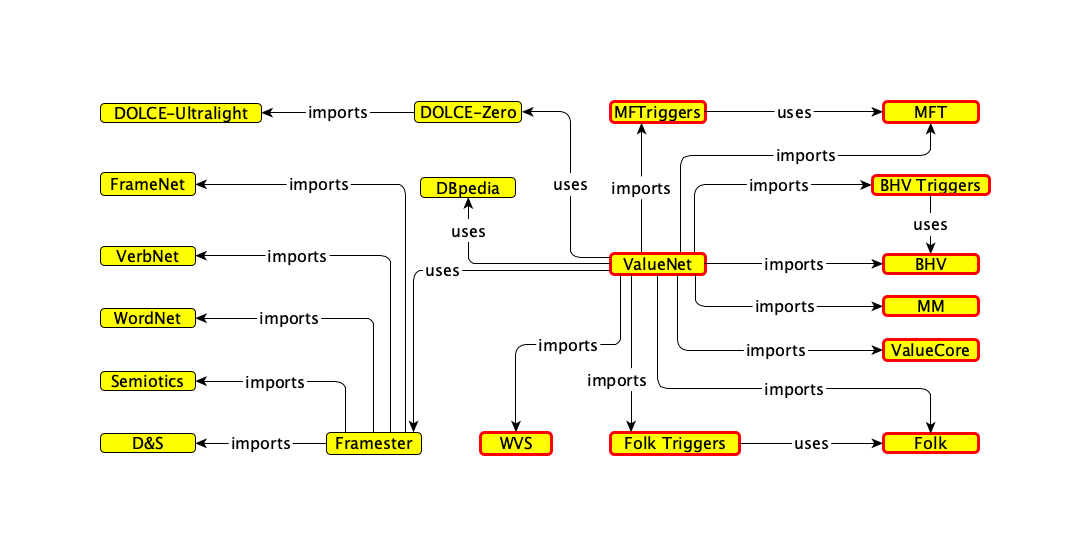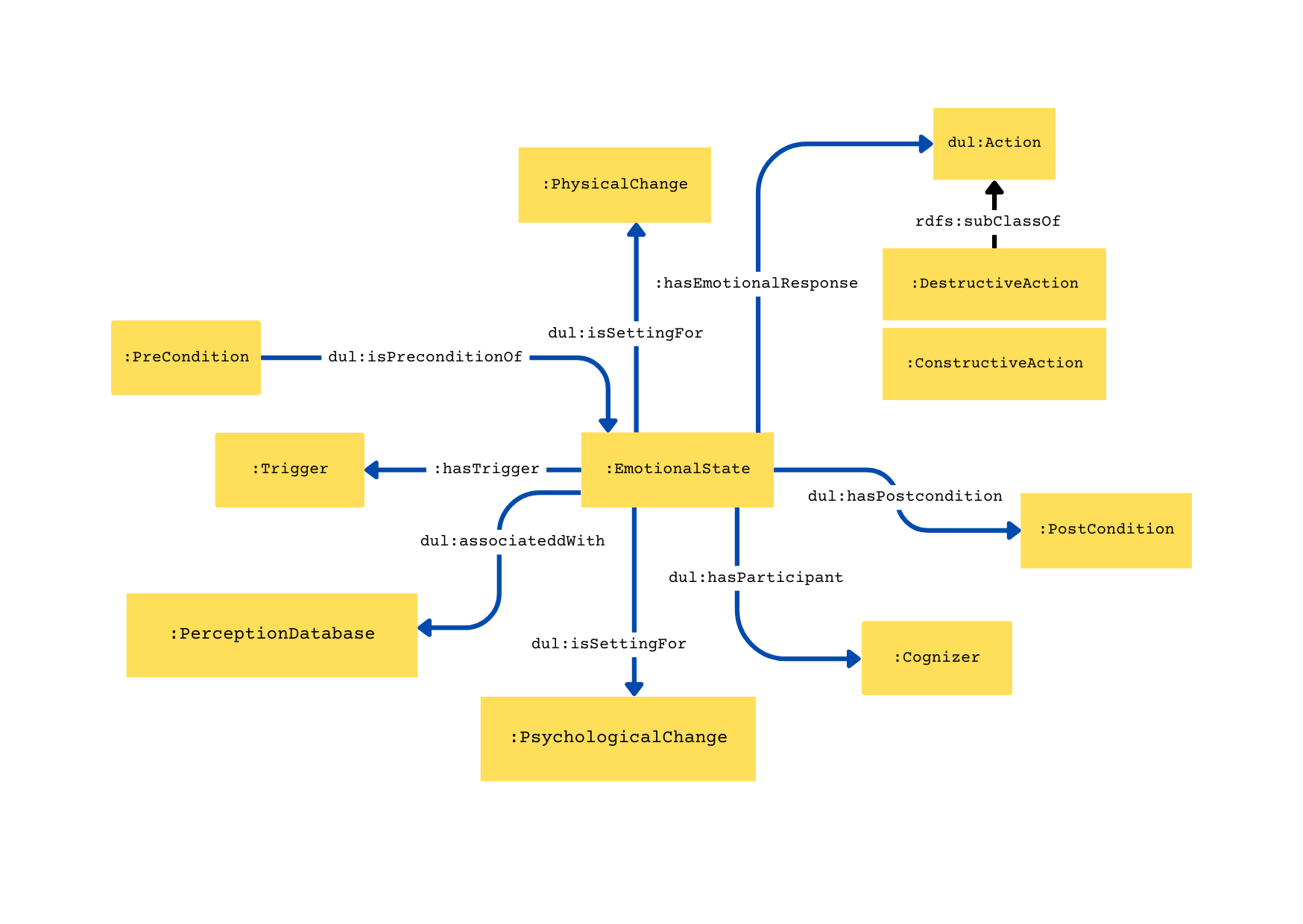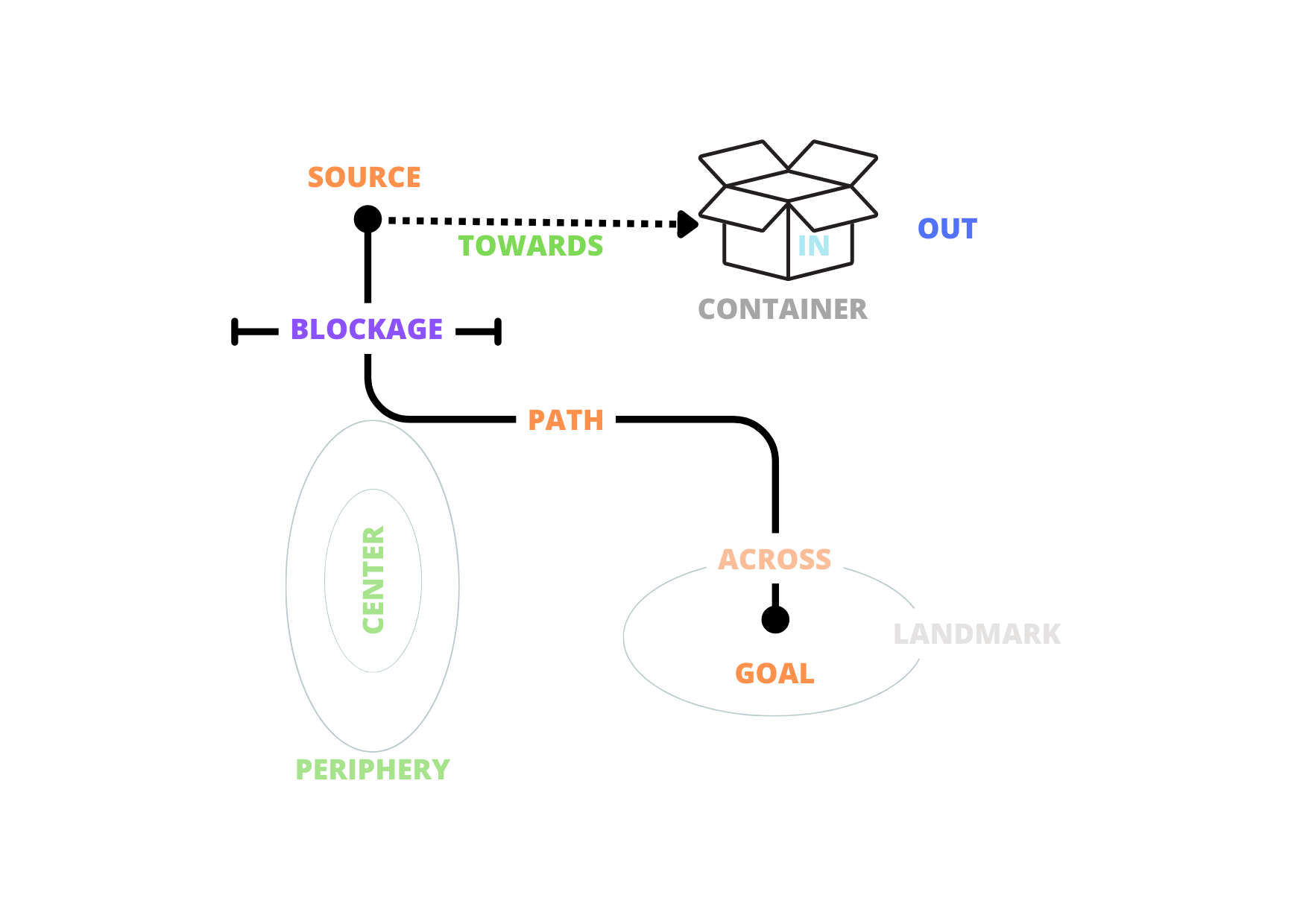Moral and Cultural Values

Values, as intended in ethics, are part of the broad and challenging area of research about Commonsense Knowledge. The attempt to untangle the complex structure of relations among human moral and social values requires investigating subjective human perception of the world as well as socio-cultural dynamics. The Values Ontology is a modular ontology representing the domain of moral and cultural values. It models several theories such as Schwartz's Basic Human Values, Graham and Haidt's Moral Foundations Theory, and Curry's Moral Molecules. Furthermore, each value is modeled as a Conceptual Frame, inteded as in Frame Semantics. The Values Ontology is based on reusable Ontology Design Patterns, it is aligned to the DOLCE foundational ontology, and it is a component of the Framester factual-linguistic knowledge graph.


